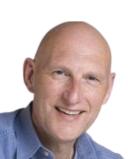Sleep
Another Myth About Sleep?
The problem with generalization when it comes to sleep.
Updated February 6, 2024 Reviewed by Davia Sills
Key points
- The current wisdom is that long naps interfere with a night's sleep and are bad for people's overall health.
- However, this finding may not be as generalizable as it first seems.
- The best source of information about an individual's health tends to be themself.
You may have read, heard, or even dreamed that taking a nap of longer than 20 minutes is bad for you. Is that true?
A recent study by researchers at the University of London and the University of Uruguay analyzed 35,000 people aged 40-69. They found that the brains of people who napped several times a week were larger than people who didn’t nap.
The lead author, Victoria Garfield, is quoted in a recent BBC piece: “The big finding was that daytime napping is quite robustly causally linked to having larger brain volume.”
“People with smaller brain volume are more likely to have higher levels of the stress hormone cortisol or a diagnosis of sleep apnea—many have cardiovascular disease.”
The general consensus in medicine is that longer naps are bad for you. That is because of the assumption that a long nap will impact nighttime sleep, which is crucial. A short nap doesn’t get you into a deep sleep, thus preserving the nighttime necessity.
The general advice, therefore, is to nap in the mid-afternoon when the circadian rhythm dips and to do so for no more than 20 minutes.
Am I unique?
As a writer and coach, I am cognitively active. I am thinking a lot during the day. I nap about three or four times a week in the mid-afternoon, and when I do, it is often for between 60 and 90 minutes, a full sleep cycle at the most. On the days I don’t nap, I typically take a four- or five-mile walk. Sometimes I do both (though not at the same time).
When I wake up after a nap, it takes a few minutes to get re-oriented, and then I’m fine. Often, my most productive time is late afternoon and early evening when I feel refreshed. I not only feel refreshed, I feel very calm and relaxed. I start to get tired around 10 and am generally asleep by 11. I often sleep a solid eight hours and wake up refreshed and ready to go. I have a lot of REM sleep and a reasonable amount of deep sleep. This way, I divide my day into roughly two 7-hour periods. Typically, I feel more refreshed when I take a long nap than I do when I take a long walk.
I can’t believe that I am the only one who has this experience.
The problem of generalization
The study mentioned above seems like it was well-conducted: 35,000 participants is a lot, but about 30 percent of the world’s age group, almost 2.5 billion people, fall into this age group. That means 0.014 percent of the population was engaged in this study. That doesn’t make it a bad study, but the numbers have to be put in perspective. Just because it’s impossible to engage millions of people in a research study doesn’t mitigate the implication of the relatively small sample.
I encountered a similar interpretative issue involving sleep a few years ago. I was given a measuring device and told to use it while sleeping on my back. Sure enough, I demonstrated signs of sleep apnea and was thus diagnosed. However, I don’t sleep on my back. I always sleep on my side, and when I do, I have no signs of sleep apnea.
Medical communication
Any communication, especially medical information, has to take into account the binary brain and the tendency to oversimplify matters by making the solution an either/or rather than an either/and.
I have a particular interest in how this affects communication about serious conditions. I know numerous people who were given fatal prognoses, and all not only survived but thrived. The one thing they had in common? They didn’t accept the prognoses and believed there were other alternatives.
This presents a challenge to physicians. If your patient has a condition in which 85 percent die within a few months, that needs to be conveyed. But surely you also need to convey the fact that 15 percent actually survive longer, some much longer?
Dr. David Katz, a leading lifestyle-as-healing expert, recently talked about this dilemma on my UK Health Radio show, The Miracle Within You. He asserted in his usual articulate way that physicians have to mention the risks, but they also need to mention other potential outcomes. Physicians aren’t trained to do this.
Research always has its flaws, and they need to be expressed, too. But sometimes, even the warnings don’t matter.
Communication is not 93 percent non-verbal.
In 1967, Albert Mehrabian conducted research on communication. The experimenter stood up before the assembled group of subjects and proceeded to say a couple of words that were completely inconsistent with his non-verbal behavior. Imagine someone loudly shouting, “I’m not frustrated!” while exhibiting muscular tension. What would you believe more? The non-verbal or verbal presentation? Duh!
Mehrabian himself warned that the study’s findings should not be applied to general communication. They only applied in a situation like the experiment, where the speaker said very few words and demonstrated completely contrary non-verbal behavior. Nonetheless, despite Mehrabian’s warning, even today, you will hear people who should know better say that communication is 93 percent non-verbal.
This shows the importance of not simplistically generalizing findings but communicating all the more nuanced implications. This is especially true in healthcare, where implanting a biased belief can influence the patient’s prognosis. If you’re told you only have three months to live and believe it, you’ll probably die in three months. What is the impact of your belief on the body? If you’re told that long naps are bad for you, will you ever try to take one?
In the BBC article, Kevin Morgan, professor of psychology and a sleep expert at the University of Loughborough in the UK, is quoted thus: “Many people don’t nap because they don’t find it easy to,” he says.
The source might be the sauce.
This highlights the need to always be aware of the source and nature of the article.
As mentioned above, Victoria Garfield, in the BBC News interview, is reported as saying, “The big finding was that daytime napping is quite robustly causally linked to having larger brain volume.”

However, in the referenced 2023 paper on the topic, the authors, Valentina Paz, Hassan Dashti, and Victoria Garfield, say, “Our findings suggest a modest causal association between habitual daytime napping and larger total brain volume.”
On the news site, daytime napping is “quite robustly” causally linked to larger brain volume, but in the research paper, that association is “modest.”
I would suspect that a news source wants to convey valuable information and minimize doubt, whereas a research paper has to be more accurate.
Be careful and aware of who is pitching the story.
Sleep on it
Don’t ever forget that the best source of data about your health is you.
References
Paz V, Dashti HS, Garfield V. Is there an association between daytime napping, cognitive function, and brain volume? A Mendelian randomization study in the UK Biobank. Sleep Health. 2023 Oct;9(5):786-793. doi: 10.1016/j.sleh.2023.05.002. Epub 2023 Jun 20. PMID: 37344293.
Mehrabian, Albert (2009). ""Silent Messages" – A Wealth of Information About Nonverbal Communication (Body Language)". Personality & Emotion Tests & Software: Psychological Books & Articles of Popular Interest. Los Angeles: self-published.




